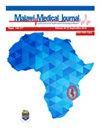Comparison of treatment methods in plastron appendicitis: a tertiary center experience
IF 1.2
4区 医学
Q4 PUBLIC, ENVIRONMENTAL & OCCUPATIONAL HEALTH
引用次数: 0
Abstract
BackgroundIt is controversial which treatment method is superior in plastron appendicitis and the research is still going on. The aim of this study is to compare treatment methods for plastron appendicitis in the adult population with our experience. Materials and MethodsThe data of 92 patients who were diagnosed with plastron appendicitis in university hospital between 2015 and 2021 were analyzed retrospectively. Data were taken from the hospital database. The patients were divided into three groups: those treated with primary surgery, with interval appendectomy and only with conservative method.Results Interval appendectomy resulted in a lower rate of conversion to open surgery compared to primary surgery, shorter operative time, and lower complication rates. Surgical procedures were found to be superior in detecting neoplasms compared to conservative treatment. After conservative treatment, one of three patients was retreated with the diagnosisof acute appendicitis.ConclusionIn plastron appendicitis, routine interval appendectomy can be performed due to its advantages over other treatments such as the frequency of attacks after conservative treatment, the risk of the tumor being overlooked in conservative treatment, and the high rate of complications and conversion to open surgery in the primary surgery group.板状阑尾炎治疗方法的比较:一家三级医疗中心的经验
背景哪种治疗方法更适合腹腔镜阑尾炎尚存争议,相关研究仍在继续。本研究的目的是根据我们的经验,比较成人腹腔镜阑尾炎的治疗方法。材料与方法回顾性分析了 2015 年至 2021 年期间在大学附属医院确诊的 92 例板状阑尾炎患者的数据。数据来自医院数据库。将患者分为三组:初次手术治疗组、间歇性阑尾切除术治疗组和仅采用保守方法治疗组。结果 与初次手术相比,间歇性阑尾切除术导致转为开腹手术的比例更低、手术时间更短、并发症发生率更低。与保守治疗相比,外科手术在发现肿瘤方面更具优势。结论:与其他治疗方法相比,常规间歇性阑尾切除术具有以下优势:保守治疗后发作频繁、保守治疗中肿瘤被忽视的风险以及初级手术组并发症和转为开放手术的比例较高。
本文章由计算机程序翻译,如有差异,请以英文原文为准。
求助全文
约1分钟内获得全文
求助全文
来源期刊

Malawi Medical Journal
Medicine-General Medicine
CiteScore
1.50
自引率
0.00%
发文量
27
审稿时长
>12 weeks
期刊介绍:
Driven and guided by the priorities articulated in the Malawi National Health Research Agenda, the Malawi Medical Journal publishes original research, short reports, case reports, viewpoints, insightful editorials and commentaries that are of high quality, informative and applicable to the Malawian and sub-Saharan Africa regions. Our particular interest is to publish evidence-based research that impacts and informs national health policies and medical practice in Malawi and the broader region.
Topics covered in the journal include, but are not limited to:
- Communicable diseases (HIV and AIDS, Malaria, TB, etc.)
- Non-communicable diseases (Cardiovascular diseases, cancer, diabetes, etc.)
- Sexual and Reproductive Health (Adolescent health, education, pregnancy and abortion, STDs and HIV and AIDS, etc.)
- Mental health
- Environmental health
- Nutrition
- Health systems and health policy (Leadership, ethics, and governance)
- Community systems strengthening research
- Injury, trauma, and surgical disorders
 求助内容:
求助内容: 应助结果提醒方式:
应助结果提醒方式:


